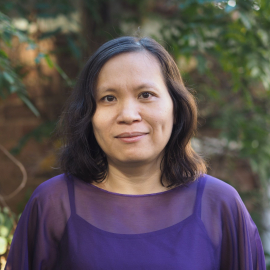Background
International research into the reproductive experiences of women with intellectual disability found that they often lack knowledge of contraception, are frequently excluded from reproductive decision-making, and undergo sterilisation at an elevated rate.
In Australia, a 2013 Senate report on involuntary or coerced sterilisation of people with disabilities highlighted several barriers to reproductive self-determination, including inadequate support on managing menstruation, and societal perceptions of people with disabilities as non-sexual and unsuited to parenthood. However, there is a lack of research examining the current state of contraception use in Australian women with intellectual disability, which is necessary for understanding the magnitude of disparity and developing targeted interventions.
Project aims
Our project aims to examine patterns of prescribed contraception use and disparities between women with and without intellectual disability.
To improve the real-life relevance of our project and amplify lived experience perspectives, we will utilise participatory research methods to help guide the development of research questions, interpretation of findings, and planning of translational actions.
We will consult with women with lived experience of intellectual disability and contraception use, as well as carers involved in contraception decision-making, as community research advisors throughout the project.



